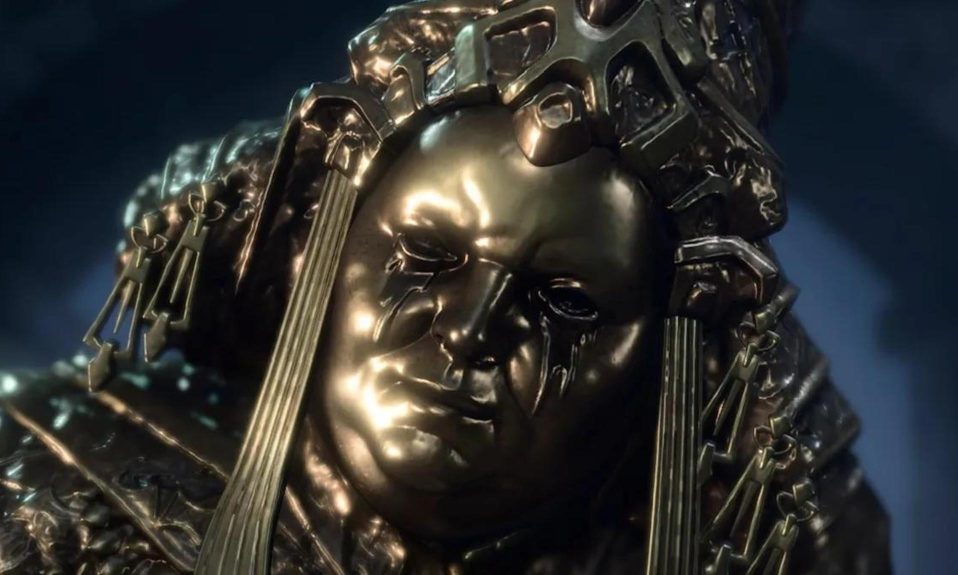Your character creation and journey through the Lands Between will go much more smoothly if you have a firm grasp on the best Elden Ring classes to choose from.
All of the classes in Elden Ring come with their own set of stats and starting weapons, so the options are nearly endless. As a Vagabond, Samurai, or Astrologer, what kind of character are you? For those new to the Soulsborne series or veterans of the FromSoftware series, here are the Elden Ring classes available and what they’re best used for.
How Do Classes work in Elden Ring?
Weapons are pre-leveled for each class, with a focus on certain character statistics known as Attributes. Your character’s appearance and gameplay in Elden Ring are influenced by a variety of Attributes.
When you defeat an enemy, you’ll earn Runes, which you can then use to level up your character and improve their Attributes, allowing them to be more effective.
With an uncapped leveling system, you can start spending points on different attributes at any time to diversify your character’s abilities. Elden Ring does not have a respec system that refunds the Runes that you spent.
The Intelligence Attribute can be used to boost your Sorcery skill if your melee weapon-focused build isn’t cutting it anymore, or vice versa. If you’ve already leveled a few other stats to a significant degree, you may want to consider this option.
Here are the Elden Ring classes Attributes and their effect:
- Vigor: Increases the number of health points available to your character (HP, the red bar)
- Endurance: Increases the maximum Equip Load and maximum Stamina (the green bar) of your character, allowing them to carry heavier or more items at once.
- Mind: Increases the Focus Points of your character (FP, the blue bar).
- Strength: Heavy, Strength-based weapons have a special damage modifier and usage requirement.
- Dexterity: This is the primary damage modifier and usage requirement for light, dexterity based melee weapons and some ranged weapons. Sorcery and Incantation casting speeds are also slightly boosted by the secondary damage modifier, which is also required for most other weapons.
- Intelligence: This is the damage modifier and usage requirement for Sorceries, but also for a few Incantations.
- Faith: This is the damage modifier along with the usage requirement for Incantations and also for a few Sorceries.
- Arcane: This is the damage modifier along with the usage requirement for Incantations. This further boosts the rate of item discovery in the outer world.
All Elden Ring Classes
Each of Elden Ring classes will be examined here to help you decide which one is best suited to your needs. The fundamentals of each of Elden Ring’s classes are covered in this guide. So let’s get started:
Bandit
Elden Ring’s assassin, the Bandit class, is a stealthy one. Short Bow sniping and backstabs are the best options for Bandit players who have a dagger and a small shield to avoid large groups of enemies.
Most players are looking for stats like Strength and Dexterity, but the Bandit offers many more points in Arcane. Having a high Dexterity level is also beneficial, but the other stats start out relatively low. The Bandit, on the other hand, has a dagger and a bow and arrows at its disposal, making it an ideal stealth-based starter class.
Some sorceries and incantations benefit from having a high Arcane stat, but this trait is better suited to specialized builds than to more general ones. This means that most players who want to maximize their stats at the end of the game will not be pleased with the Bandit as a starting class.
Hero
If you choose the Hero, your Elden Ring class will be all about brute force. Hero characters, the antithesis of Warrior characters, use heavy weapons and slow attacks that deal enormous damage.
A big axe and 16 Strength points will get you started, but more points in Strength will allow you to meet the requirements for some truly massive Strength-based weapons early in the game.
Hero is a melee-focused class that starts the game with high Strength, Endurance, and Vigor stats, along with a one-handed axe and medium-sized shield for additional protection in a pinch. It’s a no-nonsense class that’s sure to please Dark Souls melee fans.
Strength and Vigor are likely to remain your primary stats as a Hero. As your Vigor increases, you’ll be able to take advantage of the fact that you’ll be fighting most of your battles in close quarters, thanks to the increased utility provided by Strength.
Vagabond
Beginner-friendly Elden Ring class, the Vagabond can be specialized for Strength or Dexterity to craft strong and simple melee builds. We recommend sticking with the Longsword and Heater Shield for their fast attacks and good blocking because they’re the most basic weapons you’ll have to work with. In addition to protecting you, the shield can be used to practice parrying with the low-level soldiers you’ll encounter in the beginning.
The Vagabond is a seasoned knight who is prepared for close-quarters combat with heavy armor, a straight sword, and a sturdy shield. High Vigor and a near-even split between Strength and Dexterity make this class ideal for Quality builds, which bring both stats to at least 40 to equally specialize in all melee weapon types.
However, despite the Vagabond’s low Intelligence, Faith and Mind stats, you can still use spells as a backup option if you’re willing to invest a few points in these areas. However, if you intend to use magic on a regular basis, you’re better off taking a class that focuses on it.
Astrologer
When it comes to magic, the Elden Ring Astrologer class has an impressive 15 Mind and 16 Intelligence stats from the start. There are a lot of powerful Sorcery spells that can be cast by Astrologers, which makes it a very destructive ranged class.
Those new to the game who want the flexibility of using both melee and sorcery in combat will find the Astrologer to be an excellent choice. A staff and a short sword are included in this class’s arsenal for casting sorcery and engaging in light combat. Large bonuses to Intelligence and Mind ensure that you will hit hard and have plenty of casts at your disposal for ranged combat with this armor.
To get the most out of the Astrologer, you’ll need to spend most of your points on Intelligence. Without going overboard, you’ll want to boost your Mind stat, so that you can cast spells more frequently without relying on a melee weapon as your backup. There is a lot to like about this place as long as you can keep your enemies at arm’s length.
Prisoner
In the case of the Prisoner class, it’s likely that the unusual iron mask will catch your eye. Despite its odd appearance, the Prisoner is a good choice for a fast melee/casting hybrid character in the game. It is equipped with an estoc and a staff for casting sorcery as its first two pieces of equipment.
The Prisoner Elden Ring class sits in the middle of the Warrior and Astrologer classes, combining good melee with intelligent sorceries to deal damage across the board. Prisoners’ high Dexterity also has the added benefit of speeding up spell casting, so they can deal a lot of damage quickly.
Strength and stamina should be prioritized when leveling up this class because of its low Vigor and Endurance. But if you have a lot of Dexterity points, you’ll be able to perform better in both melee and magical combat.
Prophet
It is the opposite of the magic coin, focusing on faith and casting incantations that are generally supportive rather than combative. As a holy warrior, you’ll be able to protect yourself and your allies with healing Incantations, and smite your enemies with fire and holy damage if you can find suitable Incantations.
Starting with low Vigor but good Strength, they wield a spear and an incantation seal on one of their fingers. As a result, they’re a kind of hybrid class that can help you with your healing and damage spells if you’re looking for a way to supplement them.
Using the Prophet to its full potential means taking advantage of all of its greatest assets, including the healing spells that can be obtained and used. If you’re okay with being a glass cannon who prioritizes Mind and Faith stats over health, this class is a great option. Don’t forget to plan ahead for fights and keep moving during them.
Confessor
The Elden Ring Confessor class, like the Prisoner, combines the Vagabond’s balanced melee abilities with the Prophet’s Faith-focused Incantations.
As a hybrid class, the Confessor has a good mix of Faith and Strength and Dexterity points, making it an excellent choice for those who want to use spells but also want some leeway in their weapon selection. An incantation seal and a broadsword are included in the package.
A character that can cast incantations while maintaining a high level of melee combat might be right up your alley. Vigor is a good stat to have in the beginning, but you’ll need to raise it to withstand more damage if you plan on fighting in close quarters a lot.
Wretch
The Wretch is a one-armed thug whose only weapon is a club, and whose stats are all set to level 10. If you like the idea of starting from scratch and scrounging around for treasure, this is a good option for you. Additionally, the fact that all of your stats are equal means that you can customize your character to your heart’s content.
When it comes to min-maxing for optimal builds at the PVP level cap, the Wretch is a no-go. You’ll always have a few extra points in useless stats that would have been lower on a specialized starting class, no matter what build you hope to achieve.
If you’re going to play in PVP, you’re going to want to make the most of your abilities, and that’s not going to be possible here.
Only veterans of previous FromSoftware games should attempt this class, and even then, it’s best saved for a second playthrough of Elden Ring once you’ve mastered the game’s mechanics.
Samurai
Armor and weaponry that match the Samurai’s name are included in the Samurai’s arsenal. It’s a class with a strong emphasis on Dexterity, but it also has a decent spread in Vigor and Endurance, so you’ll be able to survive for a while.
Due to your low Intelligence and Faith, you won’t be able to use much magic, but that doesn’t mean you shouldn’t try to improve those stats. Ultimately, the Samurai is one of the most versatile starting options, but unless you care about the class’s aesthetics, the Vagabond is a better choice for hybrid builds.
Mastering dodges and parrying as well as the two-handed weapon stance is essential for Samurai players to deliver precise strikes and attack combos. This class can excel at both close and long ranges thanks to the Samurai’s starting Long Bow.
Well, that’s all we have here with our Elden Ring classes guide. We hope this guide helped you.










